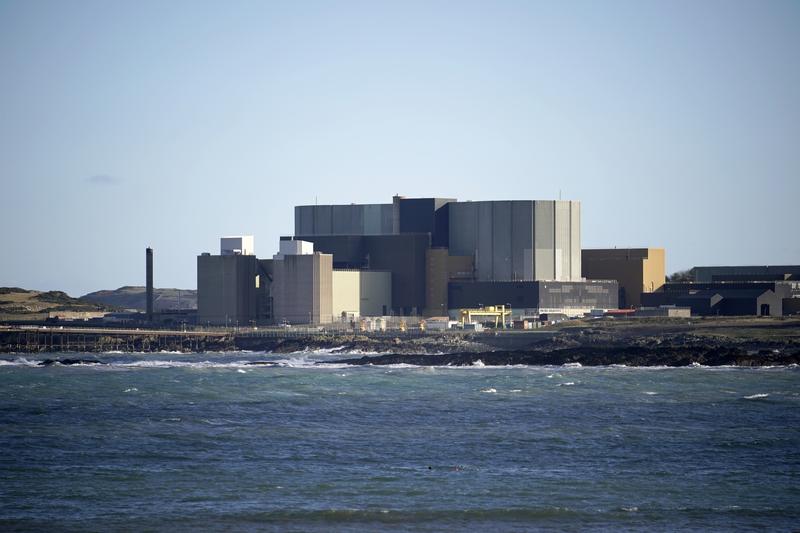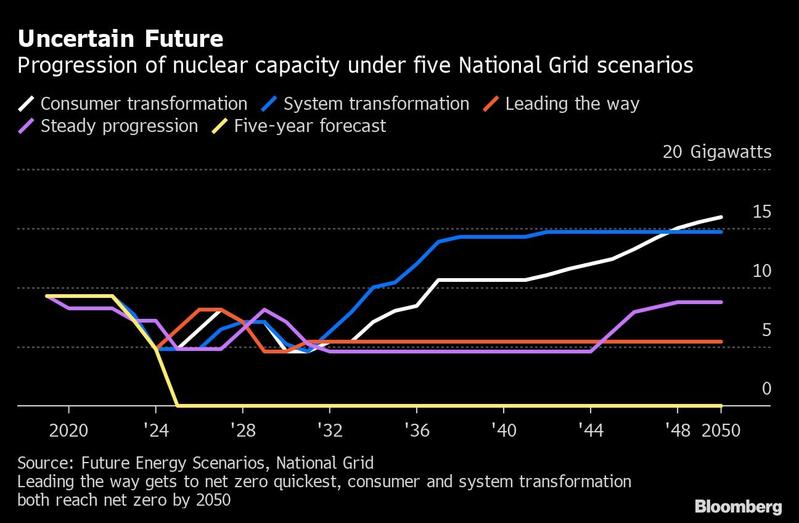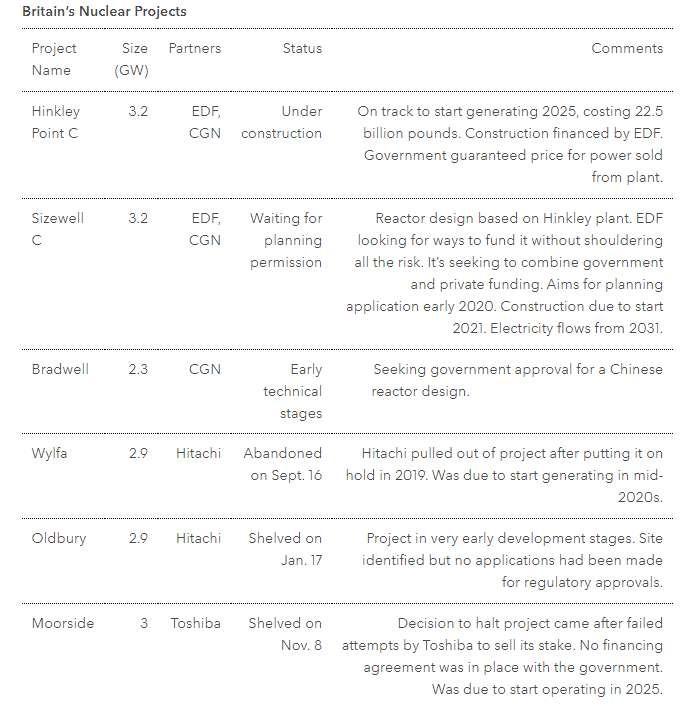 This undated file photo shows the Wylfa Nuclear Power Station in Bangor, Wales. (CHRISTOPHER FURLONG / GETTY IMAGES EUROPE / BLOOMBERG)
This undated file photo shows the Wylfa Nuclear Power Station in Bangor, Wales. (CHRISTOPHER FURLONG / GETTY IMAGES EUROPE / BLOOMBERG)
The cancellation of a British nuclear project heaped yet more pressure on the government to find a way to build the low-carbon power source that’s seen as a crucial part of the nation’s future energy mix.
Hitachi Ltd’s decision to pull the plug on its long planned Wylfa project leaves Electricite de France SA alone in building new reactors in Britain. Whether any more are built hinges on the British government finding a finance model that’s palatable to investors.
What the UK does next on nuclear should become clear when the long-awaited government white paper is published next month that’ll spell out future plans for the sector
How to pay for these costly pieces of infrastructure remains the biggest unanswered question for the sector. At the same time renewable energy costs have plunged and wind and solar farms can be built much quicker.
“Nuclear power stations are very large projects with lead times of over a decade before any revenues flow,” said Professor Rob Gross, director of the UK Energy Research Centre. “If an individual project costs 15 billion pounds (US$19.5 billion) or more then it is not surprising that the pool of private investors is quite small.”
ALSO READ: Gas and nuclear sectors fight for 'green' EU investment label

The government is reluctant to put taxpayer money on the line for companies that reap generous payouts, and executives find it difficult to put so much of their capital into single projects that may be delayed by years and run massively over budget.
For its part, the UK says it is still committed to large-scale new nuclear, beyond EDF’s Hinkley Point C. That project will now cost as much as 22.5 billion pounds, taking into account inflation, and the guaranteed price of power is significantly higher than the latest round of offshore wind projects.
READ MORE: Hitachi halts UK nuclear project as energy supply crunch looms
Just three years ago, the government anticipated building 18 gigawatts of nuclear power stations to replace the old plants. Now EDF’s Sizewell C is left as the sole project most likely to be built.
As for the rest of the nuclear fleet, they’re aging and facing early closures that will see four plants disappear by March 2024. That will leave a generation gap that needs to be filled.
Losing nuclear probably wouldn’t pose a threat to the UK’s ability to generate enough power. The gap could be filled by gas, batteries or small modular reactors that can provide back-up to renewable energy and keep the lights on.
New nuclear was until a few years ago seen as a low-carbon way of supplementing renewables -- and as such a key part of the future energy mix envisioned in a net zero world.
“The UK cannot realistically reach its target of net zero emissions without nuclear power,” said Peter Bird, Managing Director at Berkeley Research Group.

What the UK does next on nuclear should become clear when the long-awaited government white paper is published next month that’ll spell out future plans for the sector. Separately, the results of a consultation looking at finance options are expected. While the so-called regulated asset base model garnered initial support, ministers are considering other options that could include taking a stake in projects.
ALSO READ: EU pitches massive economic overhaul in new climate plan
It may be possible that another developer will take on the Welsh Wylfa site in future and the government has signaled that it’s looking into small modular reactors that will be cheaper to build and more flexible. But the concept is some way from being a mainstream option.
The future of nuclear is “entirely in the government’s hands," said Jonathan Marshall, head of analysis at the Energy and Climate Intelligence Unit. If the government doesn’t deliver a financing model “that works, that will make the decision that we’ll have to get to net zero without nuclear."


